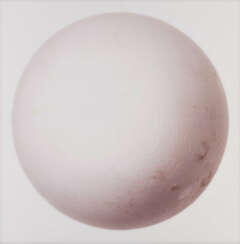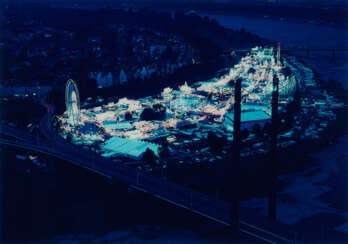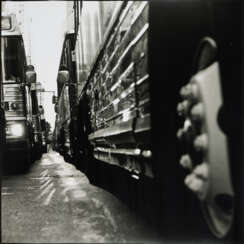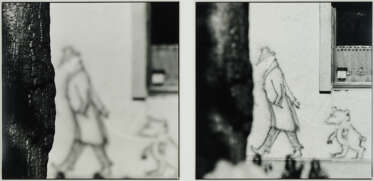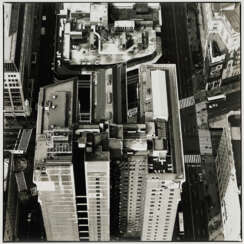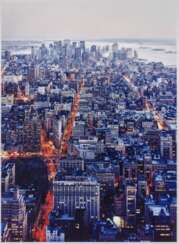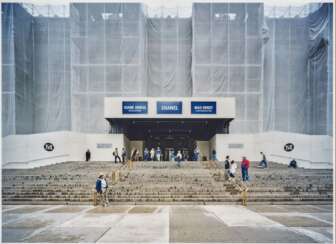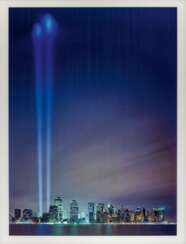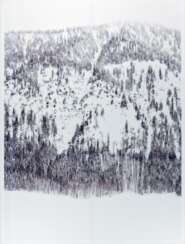Ralf Kaspers (1957) — Auction price
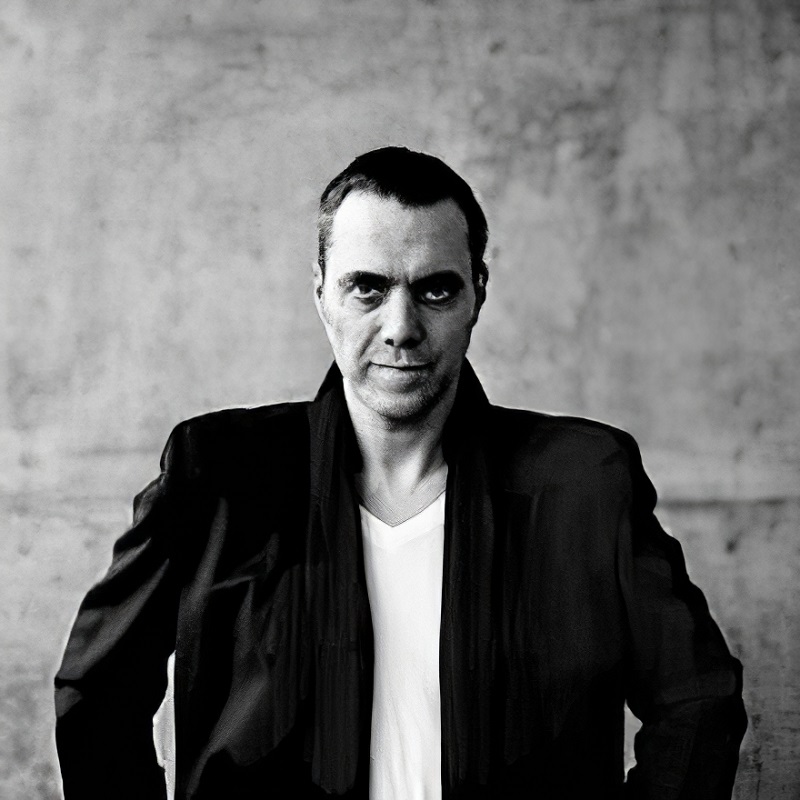
Ralf Kaspers is a contemporary German photographer.
He is attracted by monumental themes (nature, cityscapes, architecture) as well as ornamental microcosm consisting of countless combinations of identical small objects.
The constant change of themes and subjects allows the author to explore in detail the most important artistic categories such as form, texture and rhythm.


Ralf Kaspers is a contemporary German photographer.
He is attracted by monumental themes (nature, cityscapes, architecture) as well as ornamental microcosm consisting of countless combinations of identical small objects.
The constant change of themes and subjects allows the author to explore in detail the most important artistic categories such as form, texture and rhythm.


Ralf Kaspers is a contemporary German photographer.
He is attracted by monumental themes (nature, cityscapes, architecture) as well as ornamental microcosm consisting of countless combinations of identical small objects.
The constant change of themes and subjects allows the author to explore in detail the most important artistic categories such as form, texture and rhythm.
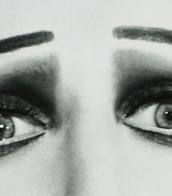

Ralf Kaspers is a contemporary German photographer.
He is attracted by monumental themes (nature, cityscapes, architecture) as well as ornamental microcosm consisting of countless combinations of identical small objects.
The constant change of themes and subjects allows the author to explore in detail the most important artistic categories such as form, texture and rhythm.
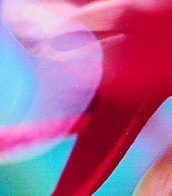

Ralf Kaspers is a contemporary German photographer.
He is attracted by monumental themes (nature, cityscapes, architecture) as well as ornamental microcosm consisting of countless combinations of identical small objects.
The constant change of themes and subjects allows the author to explore in detail the most important artistic categories such as form, texture and rhythm.


Ralf Kaspers is a contemporary German photographer.
He is attracted by monumental themes (nature, cityscapes, architecture) as well as ornamental microcosm consisting of countless combinations of identical small objects.
The constant change of themes and subjects allows the author to explore in detail the most important artistic categories such as form, texture and rhythm.


Ralf Kaspers is a contemporary German photographer.
He is attracted by monumental themes (nature, cityscapes, architecture) as well as ornamental microcosm consisting of countless combinations of identical small objects.
The constant change of themes and subjects allows the author to explore in detail the most important artistic categories such as form, texture and rhythm.


Ralf Kaspers is a contemporary German photographer.
He is attracted by monumental themes (nature, cityscapes, architecture) as well as ornamental microcosm consisting of countless combinations of identical small objects.
The constant change of themes and subjects allows the author to explore in detail the most important artistic categories such as form, texture and rhythm.
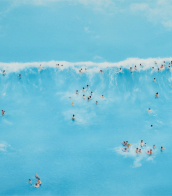

Ralf Kaspers is a contemporary German photographer.
He is attracted by monumental themes (nature, cityscapes, architecture) as well as ornamental microcosm consisting of countless combinations of identical small objects.
The constant change of themes and subjects allows the author to explore in detail the most important artistic categories such as form, texture and rhythm.


Ralf Kaspers is a contemporary German photographer.
He is attracted by monumental themes (nature, cityscapes, architecture) as well as ornamental microcosm consisting of countless combinations of identical small objects.
The constant change of themes and subjects allows the author to explore in detail the most important artistic categories such as form, texture and rhythm.


Ralf Kaspers is a contemporary German photographer.
He is attracted by monumental themes (nature, cityscapes, architecture) as well as ornamental microcosm consisting of countless combinations of identical small objects.
The constant change of themes and subjects allows the author to explore in detail the most important artistic categories such as form, texture and rhythm.
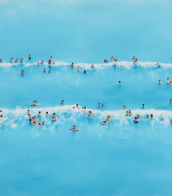

Ralf Kaspers is a contemporary German photographer.
He is attracted by monumental themes (nature, cityscapes, architecture) as well as ornamental microcosm consisting of countless combinations of identical small objects.
The constant change of themes and subjects allows the author to explore in detail the most important artistic categories such as form, texture and rhythm.


Ralf Kaspers is a contemporary German photographer.
He is attracted by monumental themes (nature, cityscapes, architecture) as well as ornamental microcosm consisting of countless combinations of identical small objects.
The constant change of themes and subjects allows the author to explore in detail the most important artistic categories such as form, texture and rhythm.


Ralf Kaspers is a contemporary German photographer.
He is attracted by monumental themes (nature, cityscapes, architecture) as well as ornamental microcosm consisting of countless combinations of identical small objects.
The constant change of themes and subjects allows the author to explore in detail the most important artistic categories such as form, texture and rhythm.
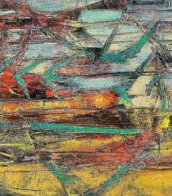

Ralf Kaspers is a contemporary German photographer.
He is attracted by monumental themes (nature, cityscapes, architecture) as well as ornamental microcosm consisting of countless combinations of identical small objects.
The constant change of themes and subjects allows the author to explore in detail the most important artistic categories such as form, texture and rhythm.
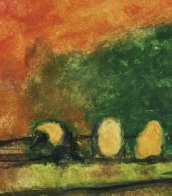

Ralf Kaspers is a contemporary German photographer.
He is attracted by monumental themes (nature, cityscapes, architecture) as well as ornamental microcosm consisting of countless combinations of identical small objects.
The constant change of themes and subjects allows the author to explore in detail the most important artistic categories such as form, texture and rhythm.


Ralf Kaspers is a contemporary German photographer.
He is attracted by monumental themes (nature, cityscapes, architecture) as well as ornamental microcosm consisting of countless combinations of identical small objects.
The constant change of themes and subjects allows the author to explore in detail the most important artistic categories such as form, texture and rhythm.


Ralf Kaspers is a contemporary German photographer.
He is attracted by monumental themes (nature, cityscapes, architecture) as well as ornamental microcosm consisting of countless combinations of identical small objects.
The constant change of themes and subjects allows the author to explore in detail the most important artistic categories such as form, texture and rhythm.
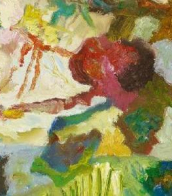

Ralf Kaspers is a contemporary German photographer.
He is attracted by monumental themes (nature, cityscapes, architecture) as well as ornamental microcosm consisting of countless combinations of identical small objects.
The constant change of themes and subjects allows the author to explore in detail the most important artistic categories such as form, texture and rhythm.



